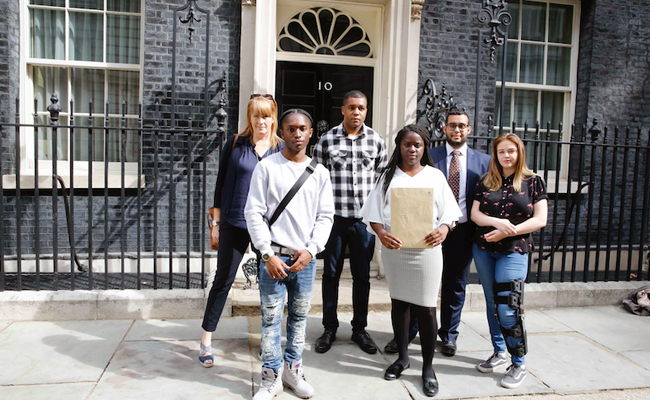YouGov poll reveals 66 per cent of adults are worried children aged 10-18 may become victims of knife crime
Two thirds of adults surveyed during the school summer holidays are concerned children may become knife crime victims, reveals new research for children’s charity Barnardo’s.
A YouGov poll of more than 1,000 adults across cities in England and Wales reveals that 66 per cent of adults surveyed are worried children aged 10-18 may become victims of knife crime.
Similarly, 61 per cent of respondents surveyed worry children feel unsafe in their local area because of knife crime.Nearly 6 in 10 (58 per cent) said children carry knives for protection because they feel vulnerable. This matches Barnardo’s experience of working with children. A new survey of the charity’s staff working directly with young people reveals that 90 per cent say children report carrying knives for protection.
Almost two thirds of adults (65 per cent) responding to the YouGov survey agreed that more safe places and activities for children such as youth clubs, sports clubs, community centres would make their area safer for children from knife crime.While 60 per cent surveyed think more investment in neighbourhoods to combat poverty, inequality and unemployment will help. In comparison, 34 per cent think that tougher sentences for those who commit crime will make their local area safer.
Last week a group of young people affected by knife crime delivered a letter and 12-point manifesto to 10 Downing Street, which called for more investment in youth services and work to help communities tackle housing and unemployment as key to tackling increases in knife crime.
Barnardo’s Chief Executive Javed Khan said, “Children should be having fun and relaxing in the school summer holidays but the majority of people surveyed are concerned children will become the victims of knife crime. This polling shows most adults realise that knife crime is a complex issue. The answer does not lie in tougher sentences but in making sure our children and young people are safe.
“We want the Government to ensure children can thrive in their own communities; provide safe environments and activities for children, alongside more investment in neighbourhoods and services to combat poverty.We need to urgently work together as a society to get a grip on this national crisis. Government needs to work with children’s services, educationalists, charities, social workers, youth workers, the criminal justice system and local communities to tackle the real causes of knife crime.”
Zak Hall, 24, from east London, volunteers for Barnardo’s and was one of the young people who delivered the letter to Downing Street. They were accompanied by Croydon Central MP Sarah Jones who chairs the cross-party All-Party Parliamentary Group (APPG) on Knife Crime, which is supported by Barnardo’s and Redthread.
Zak, whose 15-year-old brother was stabbed, said, “The government needs to re-invest in schools in order to tackle knife crime. If you leave school and believe all you can do in life is become a rapper or a drug dealer, then your school has failed you. Education is the only way we can broaden the horizons of the young people so they don’t go down that path of youth crime.”
YouGov surveyed adults in ten cities for Barnardo’s. These included: Birmingham, Bristol, Coventry, Leeds, Liverpool, London, Manchester, Newport, Nottingham, Sheffield, and revealed some interesting regional differences.
While 40 percent of adults in London thought knife crime would increase over the summer holidays, followed by 35 percent in Coventry and 31 percent in Nottingham, the figure fell to 17 percent in Leeds.
More than 7 in 10 adults in Sheffield fear that children in their area will become a victim of knife crime (72 per cent), followed by 70 percent in Bristol, and 69 percent in Liverpool and Coventry.
64 per cent of adults in Birmingham thought children would carry a knife because feel unsafe and want it for protection compared to 53 percent in Manchester.
In Coventry 57 per cent thought more safe places and activities for children would make their local area safe, increasing to 72 percent in Bristol.
While 43 per cent of adults surveyed in Newport thought that more investment in neighbourhoods to combat poverty, inequality and unemployment would help, the figure was 77 per cent in Bristol.
In Bristol, 24 per cent felt that tougher sentences would make their local area safer, compared to 40 per cent in Liverpool.
